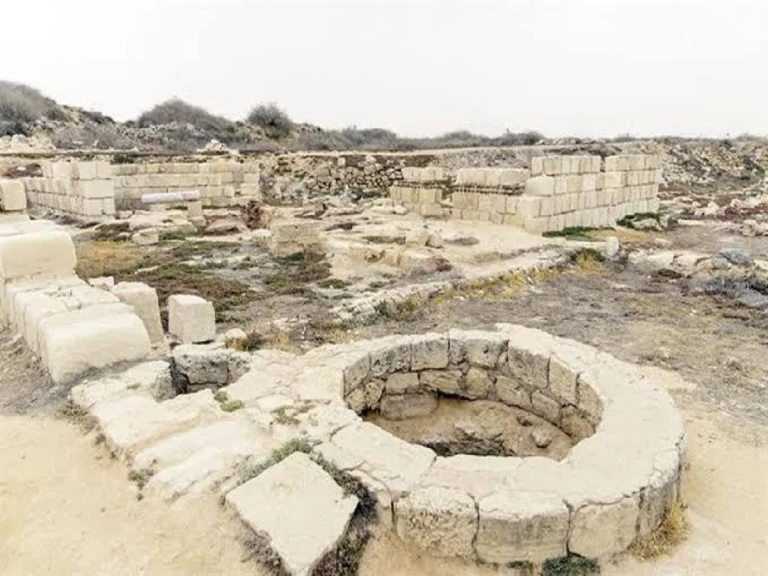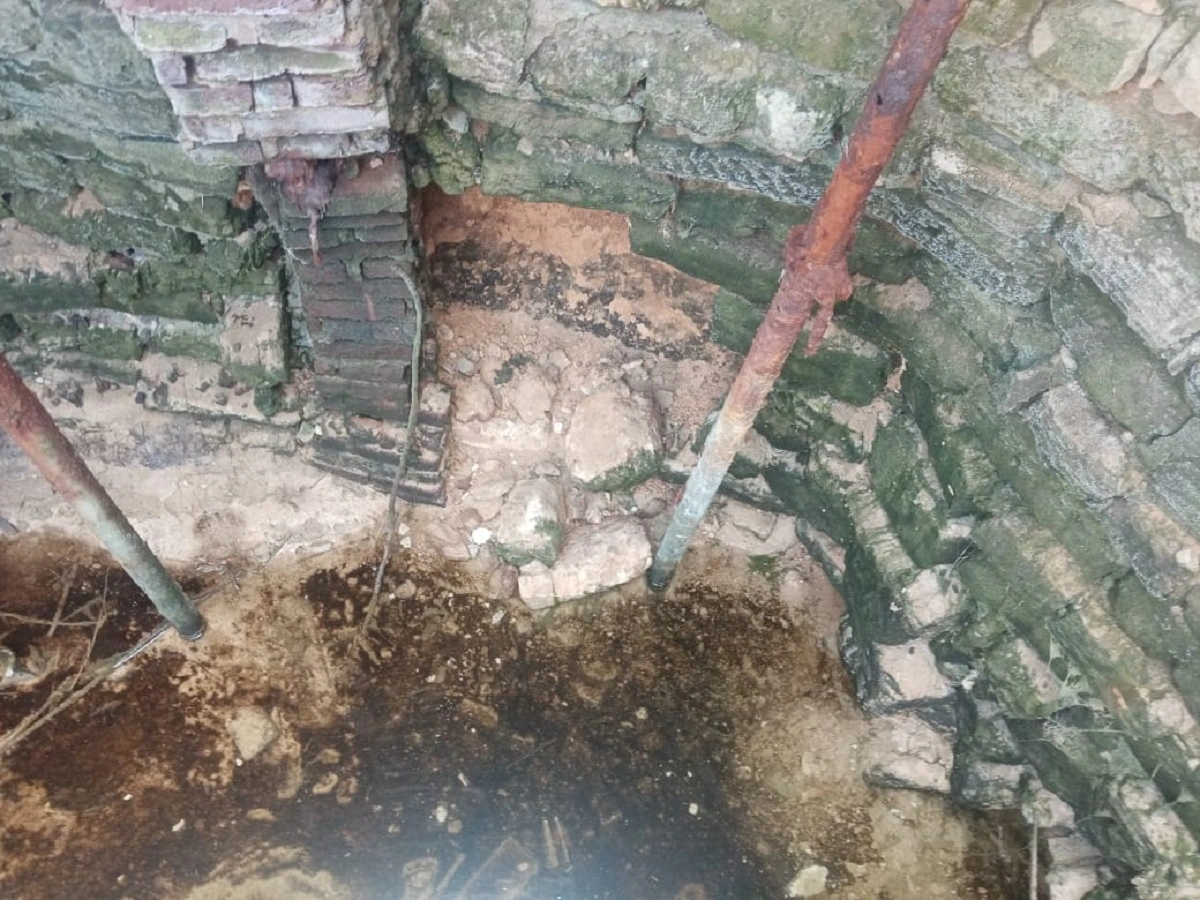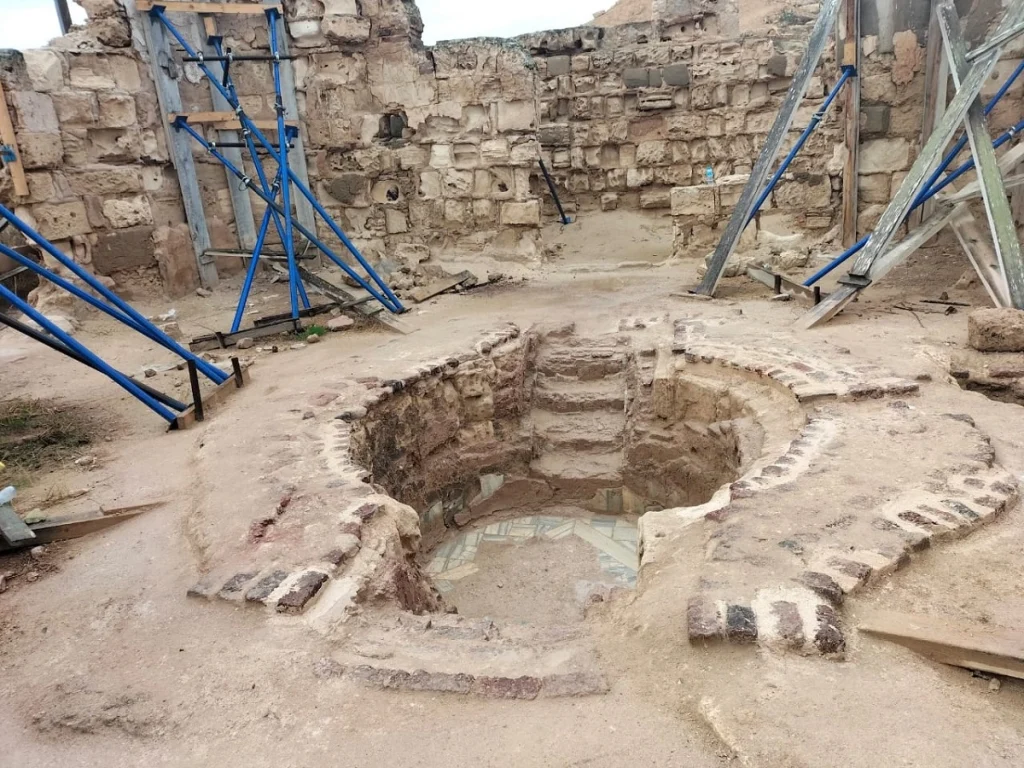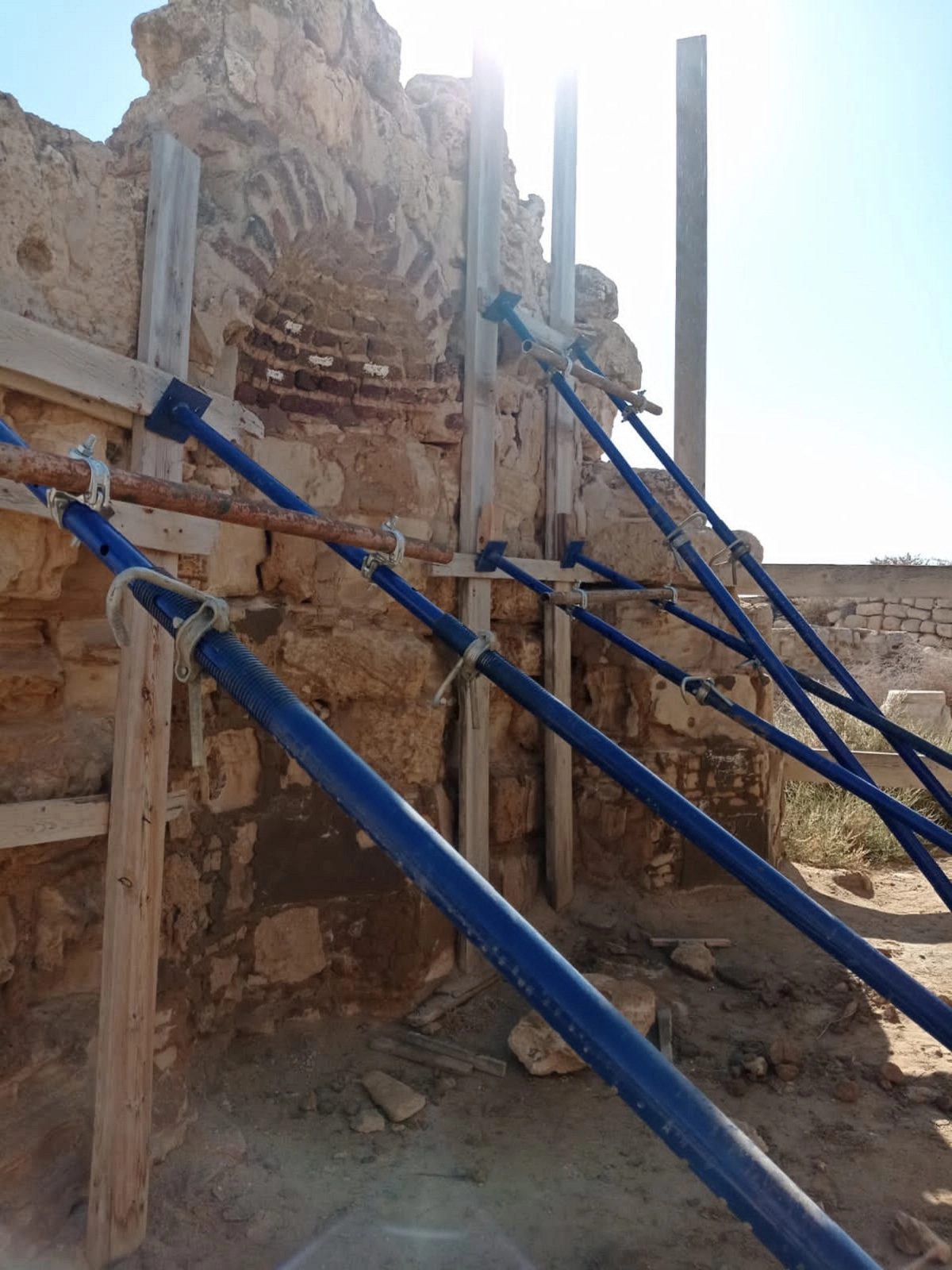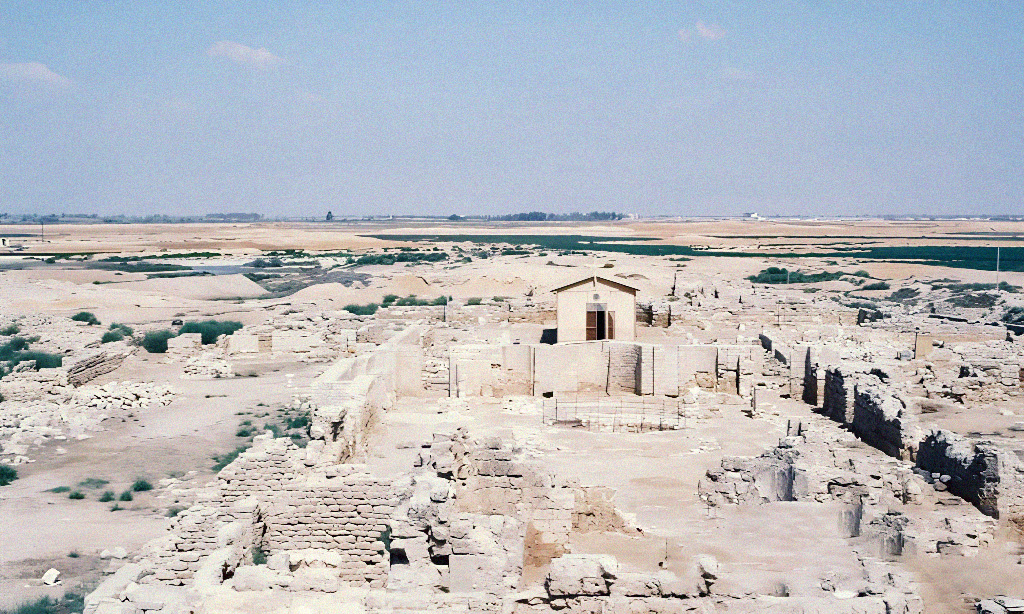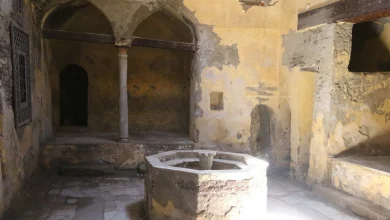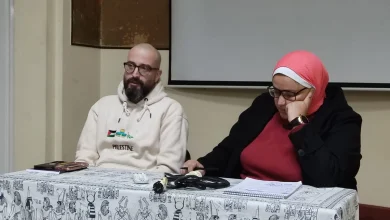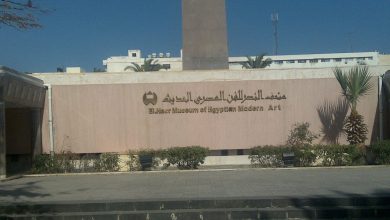After being removed from the red list | Abu Mina: a saint loved by all but neglected by the “Antiquities Authority” for decades!
For nearly a quarter of a century, the site of the Abu Mina monastery in Alexandria remained on UNESCO’s red list, its presence there well known to world heritage experts. The site has been listed as a World Heritage Site since 1979. However, despite the ministry’s failure to include other heritage sites as World Heritage Sites, it recently began taking steps to “ward off danger” from Abu Mina Monastery, starting in 2019.
Last week, the Ministry of Antiquities celebrated on its official website its success in finally removing the site from UNESCO’s list of endangered heritage sites. However, as usual, the ministry did not provide any explanation in its statement about the practical steps it would take to manage and rehabilitate the site. It did not mention any guarantees it would put in place to prevent a recurrence of the groundwater seepage problem, which has had a significant impact on the archaeological site. The Secretary-General of the Supreme Council of Antiquities merely referred in the statement to the reinforcement of archaeological elements at the site and the establishment of a monitoring system to control the groundwater level.
After the ban was lifted: unanswered questions
We asked some experts: How can the Abu Mina archaeological site in Alexandria be managed after it was removed from the list of endangered heritage sites? A well-informed source, who declined to be named, explained that the site is still suffering.
He said: “The site is suffering in terms of preservation. The tomb of Saint Mina is in a state of disrepair and needs further restoration. This also applies to the baptistery, the semi-circular church, and what remains of the marble columns.”
He confirmed that what had been done at the site was water extraction and relative site preparation. However, much work still needs to be done: “The well in which Saint Mina is buried is in danger of collapsing. But the important thing is that the file submitted to UNESCO this time was well written, although it is merely a palliative measure and not a complete solution to the crisis. The problem of the site has not been resolved yet. It is easy to use groundwater extraction methods for archaeological sites. But the real problem is the difficulty of restoring and strengthening the walls. The same goes for the collapsed roof of the ancient tomb. The biggest problem is that there is still no feasible plan for the site’s management in the near future. It needs comprehensive services to serve tourists in a manner befitting a UNESCO-listed site.”
Steps to avert danger
In contrast, Atef al-Dabah, former technical director of the Secretary-General of the Supreme Council of Antiquities and former archaeological supervisor of the Deir Abu Mina project, does not agree with this view. He recounted to us the details of what happened at the site he was assigned to work on from 2020 to 2022.
He said, “For many years, the project remained locked in drawers through office correspondence. There was no movement on the ground. But real steps to avert danger to the site began in 2019 on the part of the projects sector. The site was put into trial operation in 2021. When I was assigned to work on the site, the search for the causes of the site’s deterioration over the years began.” I began researching the reasons for the site’s deterioration over the years.“
The impact of beet cultivation
Al-Dabah continues: ”I found, for example, that the site was affected by beet cultivation in the surrounding area. This helped water reach the site and had a significant impact on it. This is one of the main reasons why the site was placed on UNESCO’s list of endangered heritage sites. The water caused damage to parts of Saint Mina’s tomb. We therefore worked to lower the water level and built a fence around the site to prevent any encroachment. The financial value was approved by the ministry. The ministries of agriculture and irrigation cooperated to complete the project. We began digging wells around the site to absorb the water before it reached the monastery.”
He noted that a team of archaeologists spent two weeks completing the restoration of the site. They found that the entrance to the monastery was in poor condition and did not befit an archaeological site that is the second most important pilgrimage site for Christians in the world. Therefore, they worked on paving the entrance to the monastery. They reinforced the walls and fences, as well as the tomb of Saint Marmina. They noticed a slight partial collapse of the tomb, so they began the process of reinforcing it.
Difficult conditions
Al-Dabah continued: “We also worked on reinforcing and restoring the interior walls. We uncovered the marble floor of the baptistery inside the monastery and carried out a process of “packing” the marble part of the columns. We did not cost the ministry anything during this period. We reused the old stones inside the site and sent them to Cairo, specifically to Fustat, to be re-carved and then sent back to the monastery site. We completed the project in 2022. The proof is that it was inaugurated by Minister Khaled El-Anany in 2022 after three complete attempts to lower the water level inside the site. The only thing left was visits by UNESCO and technical committees for inspection, which took place recently.”
He concludes: “Without the cooperation of the various archaeological sectors, whether in the management of organizations or the management of metal structures, as well as the restorers, archaeologists and engineering management personnel in the region, the project would not have seen the light of day during all these years.” Al-Dabah ends by saying: “We did not expect financial rewards, but we need moral appreciation because we worked in very difficult conditions and with our own efforts. We await our honor from His Holiness Pope Tawadros.”
Capitalizing on the event
For his part, Dr. Ibrahim Sawiris, professor of Coptic language at Sohag University, believes that removing the monastery from the list of endangered heritage sites is a positive step that should be built upon in the future.
He said, “It is necessary to increase the number of Egyptian sites registered on the UNESCO World Heritage List. Therefore, it is important to include religious sites in ancient Egypt on the UNESCO list. As long as we are able to formulate our vision in English and submit it to UNESCO, we must also take advantage of this event by submitting files to register other sites on the UNESCO list.”
Regarding the importance of the archaeological site of Abu Mina, he pointed out that the site’s fame stems from two reasons: first, the construction of the first buildings on the site predates the schism of the Church at the Council of Chalcedon. As a result, the site remained a place of pilgrimage for Christians from inside and outside Egypt. After the schism, it continued to bring together Christians who were divided theologically but united in their love for Saint Mina, the saint of the site. The second reason is Mar Mina himself, who is said to have performed countless miracles for visitors to the area. A place of healing was even built there. There, miraculous healing through the saint’s blessings was mixed with actual medical treatment.
The importance of the monastery of Abu Mina
He also pointed out that the “jars of Saint Mina”—which visitors carried away from the site filled with blessed oil or water—became a kind of ambassador for him throughout the ancient Christian world in the Mediterranean basin. Carried by the saint’s devotees, they reached Europe, the eastern Mediterranean, and all parts of Egypt.
It seems that the huge number of visitors and the interest of religious and civil leaders in the place provided him with a large income, which he invested in beautiful and picturesque buildings. This was the reason for its increasing fame until the day Pope Cyril VI, Patriarch of Alexandria, founded the modern monastery that stands today. Pope Cyril himself was one of the devotees of Saint Mar Mina. The story of the old monastery is repeated in the modern monastery, in terms of its fame and the millions of visitors who come to venerate Saint Mar Mina, the most famous of the Egyptian martyrs.
Utilization of the site
Sawiris continues: The Ministry of Antiquities and the Egyptian Church should sit down together and discuss the matter. It is important that both the antiquities inspectors and the monks understand their roles in order to avoid conflict, as the relationship between them should be complementary. It is a good relationship by nature. However, it is important to use the archaeological site in a way that benefits those who use it. This must be done while implementing and observing the conditions for the preservation and archaeological and historical character of Coptic archaeological sites.
This requires that the task of archaeologists be to raise awareness and make urgent decisions to treat the site. Modern studies in heritage site management can bring the two sides together in a complementary effort that will bear fruit in the long term, for the benefit of the country.
Solutions for site management
Dr. Mohamed Abdel Latif, Professor of Islamic Archaeology and Dean of the Faculty of Tourism and Hotels at Mansoura University, and former head of the Islamic and Coptic Archaeology Department. He believes that the urban development led by the state in the northern coast region should be exploited to serve the site. He also stresses the need for the Ministry of Tourism and Antiquities to develop good tourism programs through the Chamber of Tourism Companies. The site should be included in Alexandria’s local and international tourism programs.
The second issue is the need to publish extensive brochures and advertisements about the site in several different languages. These should be posted on the websites of the ministry, tourism companies, and all available sites. This should be done in cooperation with the cultural and tourism attachés at our embassies abroad.
The third issue raised by Abdellatif is the review of the road network connecting the site from all directions to facilitate access for tourist company vehicles. Signs should be put up on the roads, especially on the Cairo-Alexandria desert road, after the Wadi El-Natrun area when traveling from Cairo to Alexandria. Signs should also be placed at the entrance to Alexandria when traveling from Alexandria to Cairo, at intervals of three to four kilometers. The signs should include a brief description of the site.
It is also necessary to review the services available at the site and in the surrounding area, including the availability of adequate restrooms, cafes, shopping areas, and tourist souvenir shops. Finally, small brochures about the site should be prepared in several languages and distributed free of charge to visitors.
Addressing site issues
Regarding the sustainability of the site, Abdul Latif emphasizes the importance of preserving the site and completely addressing groundwater issues. This should be done by a specialized team of engineers, restorers, archaeologists, and technicians whose task is to continuously monitor and review the equipment used to raise or lower the water table.
He suggests that a report be submitted every 15 days, i.e. two reports per month, and that these reports be submitted to the head of the sector and the secretary general of the Supreme Council of Antiquities.
Read also
Will UNESCO list St. Catherine’s Monastery as an endangered heritage site?
After the St. Catherine’s Monastery crisis, has Khaled El-Anany lost the battle with UNESCO?
Nabil Darwish Museum to be demolished within days… and the alternative is a museum 500 meters away!

